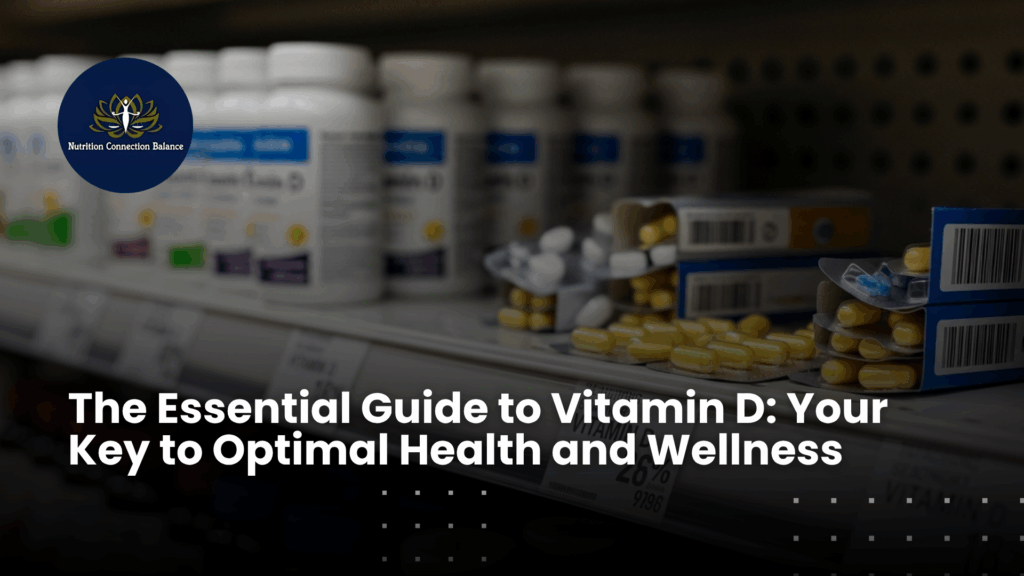
Yes, vitamin D stands as one of the most crucial nutrients for human health, yet an estimated 1 billion people worldwide suffer from Vitamin D Deficiency or insufficiency. This essential vitamin impacts virtually every system in your body, from strengthening your immune defenses to supporting bone health, improving mood, and optimizing metabolism. Despite its importance, many people remain unaware of their vitamin D status or how it might be affecting their daily wellbeing and long-term health outcomes.

Even individuals who enjoy regular sun exposure often have suboptimal vitamin D levels. Modern lifestyles that keep us indoors, widespread sunscreen use, and geographical limitations all contribute to what health experts now recognize as a global vitamin D deficiency epidemic.
“Vitamin D deficiency is increasingly common in all age groups, and it can significantly impact quality of life without people even realizing it’s the underlying cause,” says Dr. Michael Holick, a leading vitamin D researcher and endocrinologist. “The good news is that once identified, it’s one of the easiest nutritional deficiencies to correct.”
Vitamin D functions more like a hormone than a typical vitamin. When your skin is exposed to sunlight, it triggers vitamin D production, which then undergoes several transformations before becoming the active form your body can use. This active vitamin D helps with:
Many symptoms of vitamin D deficiency are subtle and often attributed to other causes:
Certain factors significantly increase your risk for vitamin D deficiency:
The only reliable way to know your vitamin D status is through a blood test measuring 25-hydroxyvitamin D levels. While many healthcare providers include this in routine bloodwork, convenient at-home testing options are now available.
“I recommend that everyone check their vitamin D levels at least once a year,” says nutritionist Sarah Jenkins. “It’s such a simple test that can reveal so much about your overall health status and potential deficiency risks.”
Many experts now believe the standard “normal” range for vitamin D is too low for optimal health:
Research continues to reveal just how vital vitamin D is for whole-body health:
Vitamin D helps activate your immune defense system while keeping inflammation in check. Studies show that sufficient vitamin D levels are associated with reduced risk of respiratory infections and autoimmune conditions.
Vitamin D works synergistically with calcium and other minerals to maintain bone density and prevent osteoporosis. Without adequate vitamin D, you can’t properly absorb dietary calcium, regardless of how much you consume.
The relationship between vitamin D and mood disorders is becoming increasingly clear. Several studies have found connections between vitamin D deficiency and depression, with some showing improvement in symptoms following supplementation.
Emerging research suggests vitamin D plays important roles in insulin sensitivity and glucose metabolism. Some studies indicate that healthy vitamin D levels may help reduce risk factors associated with metabolic syndrome.
For active individuals, vitamin D contributes to muscle function, strength, and recovery. Athletes with optimal vitamin D levels typically demonstrate better performance metrics compared to those with deficiency.
The most natural source of vitamin D comes from sunlight exposure to bare skin:
While few foods naturally contain vitamin D, some good sources include:
Most people cannot meet optimal vitamin D levels through diet alone.
For many, especially during winter months or for those with limited sun exposure, supplementation offers the most reliable way to maintain healthy vitamin D levels:
Not all vitamin D supplements are created equal. When selecting a supplement, consider:
For those serious about optimizing their vitamin D status, consider this approach:
While vitamin D deficiency is common, excessive supplementation without monitoring can lead to problems. Vitamin D toxicity is rare but possible with extremely high doses taken over time. This underscores the importance of testing rather than blindly supplementing.
Your body’s ability to produce vitamin D varies significantly with the seasons, especially if you live more than 37 degrees north or south of the equator. During winter months when UVB rays are insufficient for vitamin D production, supplementation becomes especially important.
Pregnant and breastfeeding women often require higher vitamin D intake to support both maternal and infant health. Deficiency during pregnancy has been linked to complications including preeclampsia and gestational diabetes.
Growing bodies need adequate vitamin D for proper bone development and immune function. Many pediatricians now recommend vitamin D supplements for children, especially breastfed infants.
As we age, our skin becomes less efficient at producing vitamin D, and many medications can interfere with vitamin D metabolism. Older adults often require higher supplementation doses to maintain optimal levels.
Scientists continue to discover new roles for vitamin D in human health. Ongoing research is exploring connections between vitamin D status and:
Understanding and optimizing your vitamin D status represents one of the simplest yet most profound steps you can take toward better health. Whether through sensible sun exposure, dietary sources, quality supplementation, or a combination of these approaches, maintaining optimal vitamin D levels supports your body’s core functions and overall wellness.
Don’t leave your vitamin D status to chance. Consider testing your levels and developing a personalized optimization strategy based on your unique needs and circumstances.
Whether you need a high-quality Vitamin D3 supplement formulated for maximum absorption or want to check your levels with a convenient at-home test kit, Nutrition Connection Balance has everything you need to take control of your vitamin D health.
Visit nutritionconnectionbalance.com today to get started on your journey to optimal vitamin D levels and better health!
Introducing all of the ways to work with us to optimize your health!
© 2025 - Nutrition Connection Balance.
Don’t miss our future updates!
Subscribe Today!